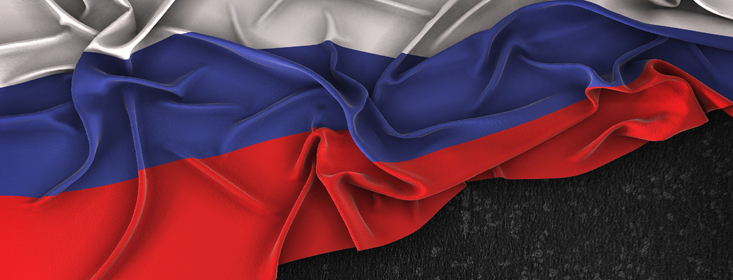Our Terms & Conditions | Our Privacy Policy
Russia takes CBAM dispute to the WTO

The Russian Federation has turned to the World Trade Organization as it challenges the legitimacy of the…
The Russian Federation has turned to the World Trade Organization as it challenges the legitimacy of the bloc’s Carbon Border Adjustment Mechanism.
The World Trade Organization (WTO) yesterday (19 May) revealed that the Russian Federation has formally requested consultations with the European Union (EU) and its member states regarding the bloc’s Carbon Border Adjustment Mechanism (CBAM). Russia’s request, dated 12 May and which details Russia’s concerns over the CBAM’s compliance with various WTO agreements, has now been circulated to the WTO’s Dispute Settlement Body.
CARBON LEAKAGE
The CBAM addresses ‘carbon leakage’ by imposing charges on imports of certain goods from countries with less stringent carbon emission regulations. The EU argues that this mechanism is essential to prevent companies from relocating production to countries with lower environmental standards, thereby undermining the EU’s efforts to combat climate change. However, Russia contends that the CBAM is a protectionist trade-restrictive measure disguised as an environmental policy, which unfairly targets non-EU countries and violates several WTO agreements.
THE BACKGROUND
The roots of the dispute can be traced back more than two decades to October 2003, when the EU established the EU Emissions Trading System (EU ETS), a mechanism which sets a cap on the total amount of greenhouse gases that can be emitted by installations covered by the system, with allowances allocated or auctioned to companies. Over time, the EU identified a risk of carbon leakage, where companies might move production outside the EU to avoid the costs associated with the EU ETS. To address this, the EU introduced the CBAM in May 2023, which imposes charges on imports of goods such as cement, electricity, fertilisers, iron, steel and aluminium, based on their carbon footprint.
RESTRICTION OF TRADE
Russia’s request, which has been seen by ICLG News, outlines several key issues with the CBAM. First, Russia argues that the CBAM imposes additional “tariff-like” charges on imports, which are inconsistent with the EU’s obligations under the General Agreement on Tariffs and Trade (GATT) 1994. Specifically, Russia claims that the CBAM violates those articles which prohibit discriminatory and trade-restrictive measures, further contending that the CBAM’s requirements for monitoring, reporting and verifying emissions are overly burdensome and create significant uncertainty for exporters.
Furthermore, Russia is challenging the CBAM’s compatibility with the Agreement on Subsidies and Countervailing Measures (SCM Agreement), the WTO protocol that regulates the use of subsidies and countervailing measures by WTO members. Russia argues that the CBAM effectively provides a financial benefit to EU producers by imposing additional costs on imports, thereby distorting competition. Russia also claims that the CBAM’s provisions for free allocation of emission allowances to sectors at risk of carbon leakage constitute prohibited subsidies contingent upon export performance.
CAUSES OF ACTION
In addition to the CBAM, the request addresses the EU’s export subsidy scheme under the EU ETS, contending that the EU allocates a greater number of emission allowances free of charge to sectors deemed at risk of carbon leakage, which constitutes a financial contribution by the government that confers a benefit to certain sectors. This, Russia claims, is inconsistent with both the SCM Agreement and the GATT 1994.
The legal basis for Russia’s complaint is grounded in several WTO agreements, including the GATT 1994, the Agreement on Import Licensing Procedures and the SCM Agreement, with Russia arguing that the CBAM and the EU’s export subsidy scheme nullify or impair the benefits accruing to Russia under these agreements. Russia has reserved the right to raise additional factual and legal issues and to address other measures and claims under the covered agreements during the consultations and any future panel proceedings.
The CBAM Package includes various rules and requirements, such as obtaining authorisation to import covered goods, monitoring and reporting emissions, verifying embedded emissions, and purchasing and surrendering CBAM certificates, all of which, Russia argues, creates substantial trade barriers and increased transaction costs for importing goods into the EU. The CBAM also provides for exceptions and exemptions for certain countries and goods, which Russia claims are discriminatory.
The EU has defended the CBAM as a necessary measure to combat climate change and prevent carbon leakage, maintaining that the CBAM is designed to level the playing field for EU producers who face higher costs due to the EU ETS. Brussels is adamant that the CBAM is consistent with WTO rules and that it has taken steps to ensure transparency and predictability in its implementation.
The outcome of this dispute could have game-changing implications for international trade and climate policy, and – perhaps – the CBAM in its current form. If the consultations fail to resolve the issues, Russia may request the establishment of a WTO panel to adjudicate the dispute, at which point the delicate balance between environmental protection and trade liberalisation will be put to the test.
[ad_1]
Images are for reference only.Images and contents gathered automatic from google or 3rd party sources.All rights on the images and contents are with their legal original owners.
[ad_2]


Comments are closed.